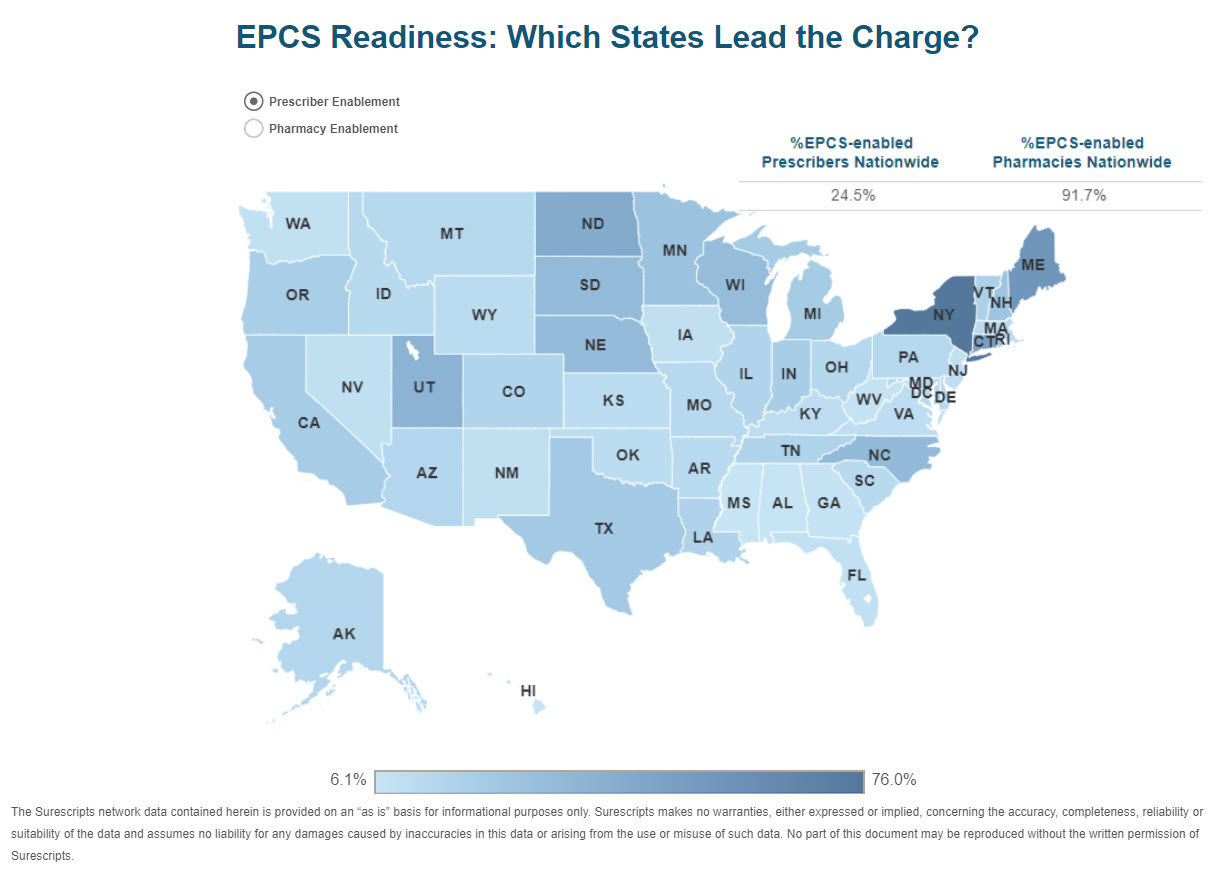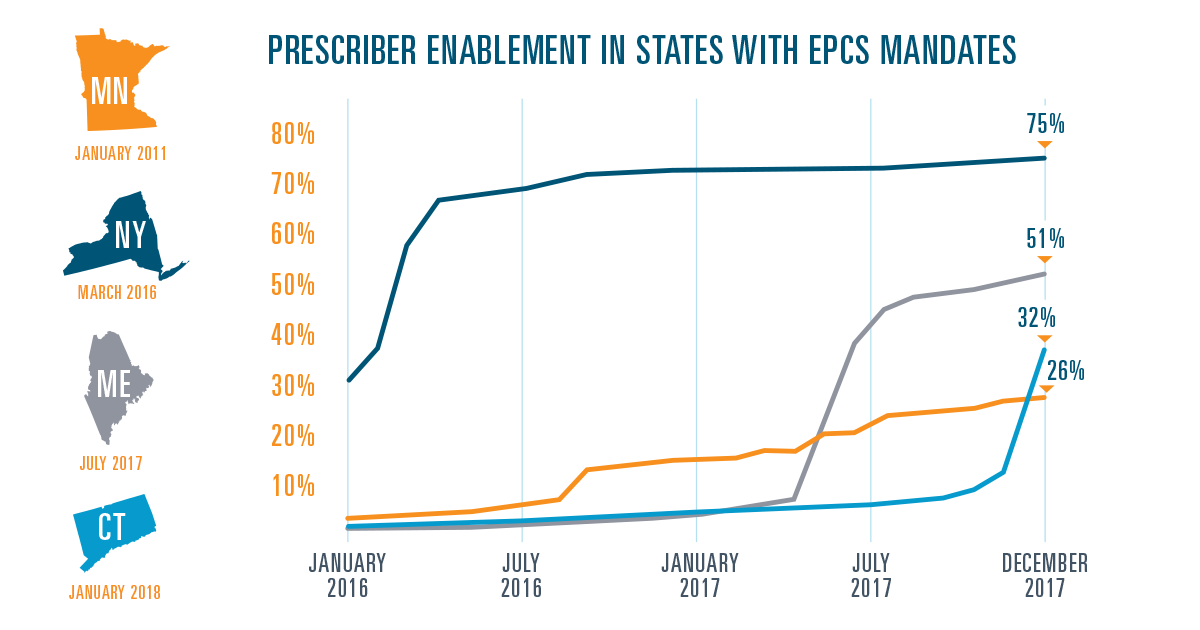According to recent research from the IQVIA Institute, the number of opioid prescriptions in the U.S. fell 10.2% in 2017 compared to 2016. At the same time, lawmakers are taking aim at the opioid epidemic by ramping up legislation that mandates Electronic Prescribing for Controlled Substances (EPCS).
EPCS is a critical tool in the nation's response to the opioid epidemic. It eliminates paper prescriptions that can be stolen or forged and gives prescribers electronic access to a patient’s prescription history to help identify potential overuse or abuse. There are other benefits as well, including enhanced security and privacy, and improved workflow efficiency for prescribers and pharmacists alike.
A handful of states have already mandated the use of e-prescribing in general or EPCS for opioids and other controlled substances, including Minnesota, New York, Maine and Connecticut, where mandates are currently in effect. The latter three states saw a dramatic uptick in the number of prescribers enabled to use the technology as the effective dates of each respective law approached. Minnesota does not have specific penalties for non-compliance, therefore the rate of increase in prescriber enablement for EPCS has been less dramatic.
Several other states have passed EPCS legislation that will go into effect during the next two years, including Arizona, New Jersey, North Carolina, Rhode Island and Virginia. It is likely that these states will also see a rapid increase in the number of EPCS users as their deadlines for implementation draw near.
And there’s more good news: the EPCS movement continues to gain momentum. Another 14 states have had legislation introduced, and about half of these bills will likely pass this year. Check out our interactive map (updated monthly) to see where each state stands in terms of EPCS enablement for both prescribers and pharmacies as well as any relevant policy developments. 
In addition to EPCS, Surescripts has several solutions that can help combat the opioid epidemic. Our Medication History solutions enable prescribers to see which medications patients have received and if they’ve been prescribed opioids in the past. Record Locator & Exchange allows prescribers to quickly identify any care patterns that might impact the decision to prescribe opioids, while Clinical Direct Messaging lets them contact other clinicians for more information on any red flags they observe. If a prescriber decides opioids are the right treatment option, Insights for Medication Adherence enables them to see if the prescription is being taken as intended.
Be sure to subscribe to Intelligence in Action so you don’t miss future EPCS policy updates.


 Dean Riggott Photography
Surescripts
Dean Riggott Photography
Surescripts


